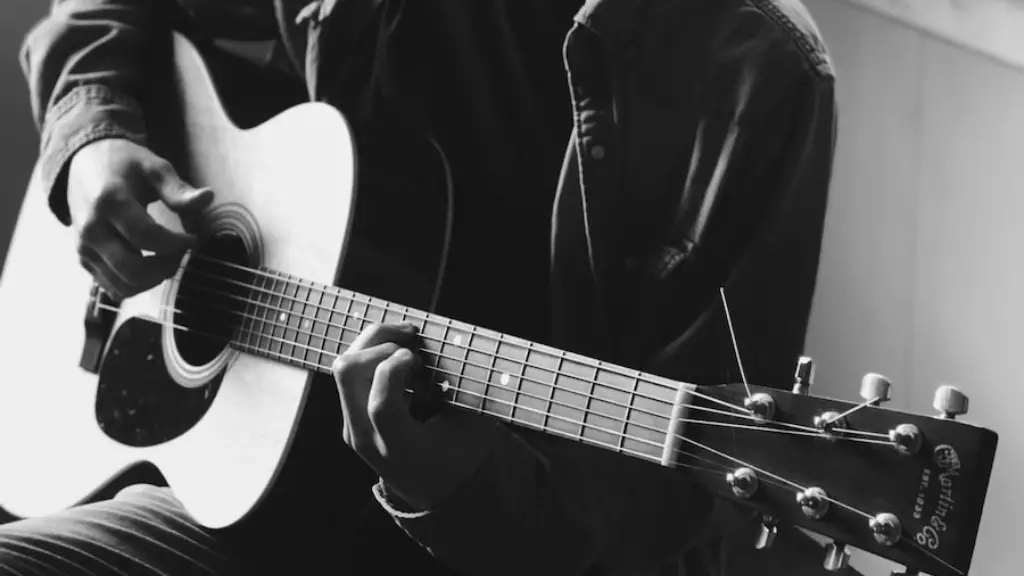In order to sing well, you need to have good vocal technique. This means having proper breath support, good vocal placement, and good diction. You also need to be able to stay on pitch and have a clear tone.
Good singing technique is based on many factors including posture, breath support, vocal cord health, and more. While some people are born with a natural ability to sing well, anyone can learn to sing better by following some simple tips and practicing regularly.
How can I improve my singing voice?
1. Humming can help you relax and warm up your voice.
2. Recognize your flaws and work on them.
3. Practice daily to improve your vocal skills.
4. A singing diet can help improve your vocal health.
5. Understand your posture and learn how to improve it.
6. Drink lots of water to keep your vocal cords hydrated.
7. Use a humidifier to keep your environment moist.
8. Avoid smoking and drinking alcohol, as they can damage your vocal cords.
There is no one answer to the question of how to sing beautifully. However, some tips on how to improve your singing voice may include: establishing balance in your voice, practicing applying vocal balance musically, learning how to sing melodies, practicing your songs silently, and staying with it for life.
Can a terrible singer become good
The most important thing to remember is that even if you have a “bad” singing voice in the beginning, it’s perfectly fine. Once you understand the basics and learn good techniques, you’ll become a much better singer. Just get out of your own head, establish good practice routines, and you’ll be amazed at the progress you make.
Vocal ability largely comes down to being able to control the pitch of the sound. The main reason why some people appear to be poor singers comes down to lacking the right motor control. Music production and singing in particular can be thought of as a physical skill.
What should I drink before singing?
Water is essential for keeping your vocal cords hydrated and healthy. Herbal teas can also be beneficial for your voice, but be careful not to drink them too hot. Drink plenty of water throughout the day, and keep a water bottle handy during singing lessons and rehearsals.
A healthy voice requires a strong body with generally good muscle tone and endurance. So plan to eat a balance of protein, fruits and vegetables, whole grains and beans, and moderate amounts of healthy fats and oils. The current typical American diet of highly processed, packaged food lacks many essential nutrients.
Does humming improve singing?
Humming is an excellent vocal exercise for many reasons. It helps to stretch the vocal cords, relaxes the facial muscles, and improves breathing. Humming also develops your vocal resonance and tone quality. All of these factors together can help you to produce a richer, more full-sounding voice. So next time you need to warm up your voice, try humming a few scale exercises!
This is good news for those of us who have always wanted to sing but never thought we could. Professor Rutkowski says that with some basic instruction, everyone can learn to sing well enough to carry a tune. So, if you’ve always wanted to belt out a tune but never thought you could, maybe it’s time to give it a try!
How do I find my singing voice
Voice what does chest voice chest voice is the name that we give to that bottom part of a singer’s range that is the most powerful and resonant. When a singer uses chest voice, their vocal cords are thickened and they are able to project their voice more easily.
This is a great list of karaoke songs that are sure to challenge even the most experienced singers! We particularly love “Bohemian Rhapsody” and “Stone Cold” as they are both such iconic and well-known songs. If you’re looking for a fun and challenging karaoke song to sing, we highly recommend any of the ones on this list!
What is the best age to be a singer?
If you’re 18 years old and your voice hasn’t settled into its adult sound, don’t worry! This is perfectly normal and you can begin singing at any age. Remember, everyone’s voice is unique and there is no one “right” way to sound. Just enjoy making music and have fun!
The ability to sing depends on a number of factors, including genetics and physiology. However, you can’t be born a singer – you have to learn how to use your vocal apparatus to produce sound. Singing is a skill that can be learned through practice and instruction. If you have the right genetics and physiology, you may have a better disposition for singing, but everyone has the potential to learn how to sing.
Why is my voice so weak when I sing
If you have a raspy or weak voice, you may have laryngitis. This is an inflammation of your larynx or your voice box. Laryngitis affects your vocal cords, which are in the voice box. The vocal cords are two folds of membrane that cover a structure of cartilage and muscle.
Your singing voice is an actual instrument, and it can be considered the hardest instrument to master because of how intricate and individual each voice is. Unlike an acoustic guitar that can be tuned and then played, the voice has many elements that need to be aligned to create beautiful music. Each person’s vocal cords are a different length and thickness, which means that each person’s voice will sound different. In addition, the way someone uses their vocal cords can greatly affect the sound of their voice. For example, someone who is a great singer may have very strong vocal cords that allow them to belt out powerful notes, or someone with weak vocal cords may not be able to sing very loudly. There are many factors that go into creating a beautiful singing voice, and it is truly a gift to be able to sing well.
How can I sing less boring?
And exciting sound try singing that same a vowel but keep your tongue inside Your mouth try addingMore vibrato to your voice by adding a little more air to your voice and vibrating your vocal cords
It is important to avoid mucous producing foods and beverages, stimulants, and refined sugars before singing. These substances can increase mucus production and can lead to congestion and difficulty singing. Caffeine and chocolate can also act as stimulants and should be avoided before singing. Alcohol can dry out the vocal cords and should be avoided before singing.
What can ruin your voice
Voice problems can have many different causes. Some common causes include upper respiratory infections, inflammation caused by gastroesophageal reflux (sometimes called acid reflux, heartburn, or GERD), vocal misuse and overuse, and growths on the vocal folds such as vocal nodules or laryngeal papillomatosis. In some cases, voice problems can be due to cancer of the larynx. If you are experiencing any changes in your voice, it is important to see a doctor so that the cause can be properly diagnosed and treated.
To avoid ruining your singing voice, avoid eating foods that are high in fat content, like fried or greasy foods, eggs, butter and other dairy products. Also avoid acidic meals like spicy foods, peppers, concentrated tomato dishes, vinegar, and citrus fruits. Eating any of these foods is likely to give you heartburn or indigestion, which can lead to burping and ruin your singing performance.
Conclusion
In order to sing well, you need to do two things: practice and develop your vocal technique.
To practice, you can either take singing classes or lessons from a private vocal coach, or you can practice on your own at home. There are also many online resources that can help you improve your singing voice.
When it comes to developing your vocal technique, there are a few key things to keep in mind. First, make sure you’re breathing from your diaphragm and not your chest. Second, focus on enunciating clearly and hitting the right notes. And finally, practice frequently so that your voice stays strong and in good shape.
In conclusion, to sing good you need to have good vocal technique and breath control. You also need to be able to hear yourself and make adjustments accordingly. Lastly, you need to practice, a lot. The more you practice, the better you will become at singing.



